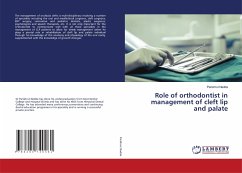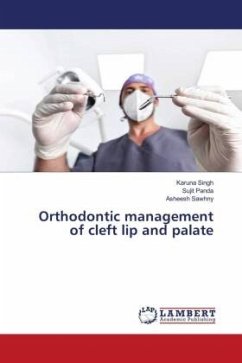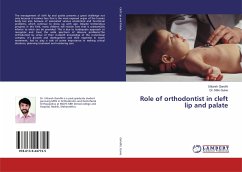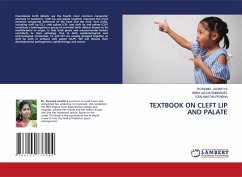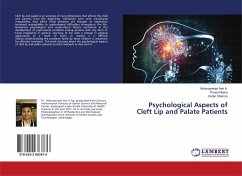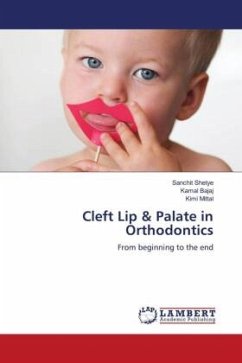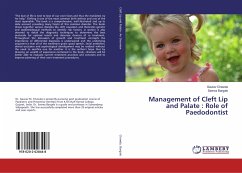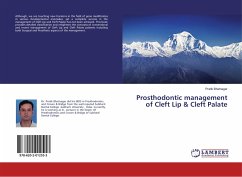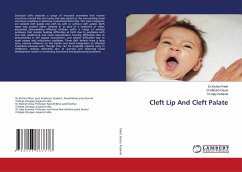
Cleft Lip And Cleft Palate
Versandkostenfrei!
Versandfertig in 6-10 Tagen
51,99 €
inkl. MwSt.

PAYBACK Punkte
26 °P sammeln!
Orofacial clefts describe a range of neonatal anomalies that involve structures around the oral cavity and may extend to the surrounding facial structures resulting in extensive craniofacial deformity. The main categories are isolated cleft palate and cleft lip with or without cleft palate. Both types may present either isolated or as part of a syndrome or other associated abnormalities. Affected children suffer a range of medical problems that include feeding difficulties at birth due to problems with oral seal, swallowing and nasal regurgitation, hearing difficulties due to abnormalities in ...
Orofacial clefts describe a range of neonatal anomalies that involve structures around the oral cavity and may extend to the surrounding facial structures resulting in extensive craniofacial deformity. The main categories are isolated cleft palate and cleft lip with or without cleft palate. Both types may present either isolated or as part of a syndrome or other associated abnormalities. Affected children suffer a range of medical problems that include feeding difficulties at birth due to problems with oral seal, swallowing and nasal regurgitation, hearing difficulties due to abnormalities in the palatal musculature, and speech difficulties due to nasal escape and articulation problems. These cleft defects have a long term, adverse influence on the health and social integration of affected individuals because even though they can be surgically repaired early in childhood, residual deformity due to scarring and abnormal facial development results in continuing functional and psychosocial problems.
Orofacial clefts describe a range of neonatal anomalies that involve structures around the oral cavity and may extend to the surrounding facial structures resulting in extensive craniofacial deformity. The main categories are isolated cleft palate and cleft lip with or without cleft palate. Both types may present either isolated or as part of a syndrome or other associated abnormalities. Affected children suffer a range of medical problems that include feeding difficulties at birth due to problems with oral seal, swallowing and nasal regurgitation, hearing difficulties due to abnormalities in the palatal musculature, and speech difficulties due to nasal escape and articulation problems. These cleft defects have a long term, adverse influence on the health and social integration of affected individuals because even though they can be surgically repaired early in childhood, residual deformity due to scarring and abnormal facial development results in continuing functional and psychosocial problems.
Orofacial clefts describe a range of neonatal anomalies that involve structures around the oral cavity and may extend to the surrounding facial structures resulting in extensive craniofacial deformity. The main categories are isolated cleft palate and cleft lip with or without cleft palate. Both types may present either isolated or as part of a syndrome or other associated abnormalities. Affected children suffer a range of medical problems that include feeding difficulties at birth due to problems with oral seal, swallowing and nasal regurgitation, hearing difficulties due to abnormalities in the palatal musculature, and speech difficulties due to nasal escape and articulation problems. These cleft defects have a long term, adverse influence on the health and social integration of affected individuals because even though they can be surgically repaired early in childhood, residual deformity due to scarring and abnormal facial development results in continuing functional and psychosocial problems.



